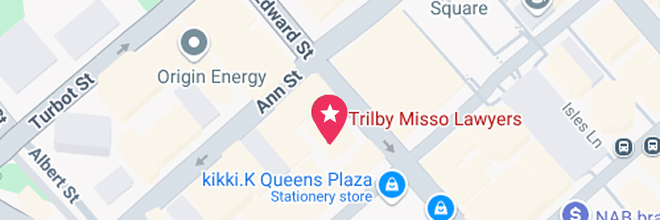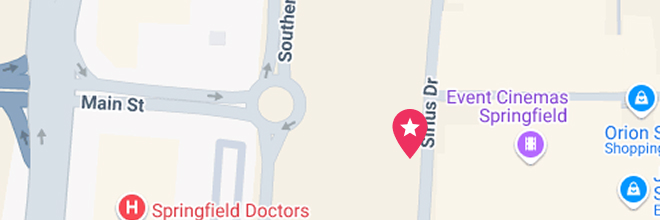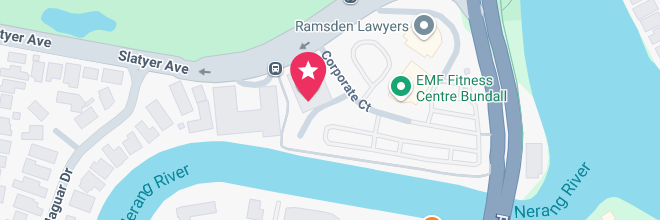Our Brisbane CBD Office
- Suite 400, Level 4/288 Edward St, Brisbane City QLD 4000
- (07) 3910 5470




Experiencing an accident can be a stressful and confusing time. Knowing what steps to take immediately after an accident can make a big difference to your safety, health, and any potential compensation claim you may have. Whether it’s a car incident, a workplace accident, or even an injury in a public area, having a clear plan in place helps you stay focused when things feel chaotic.
In Queensland, there are certain actions everyone should consider following an accident to ensure they meet legal requirements, protect their rights, and gather the necessary information for insurance or compensation purposes. From securing the scene and documenting details to seeking medical care and consulting with insurance providers, each step plays a role in your recovery and any claims you may need to make.
This guide outlines eight essential steps to take after an accident. These steps are not just practical but designed to help you feel more confident about your next moves. By following this advice, you can protect yourself physically, legally, and financially, ensuring the best possible outcome. Read on to learn exactly what to do if you find yourself in an unexpected situation.
Ensure Safety: What Should I Do First After an Accident?
In the immediate aftermath of an accident, your top priority is safety. Taking quick, thoughtful steps can protect you and others from further harm.
If you’re able, move yourself and any passengers to a safe spot away from traffic or other hazards. Remaining in a vulnerable position could lead to further incidents, especially on busy roads.
Assess yourself and others for any injuries. Even if injuries don’t seem serious, take note of any pain or discomfort. If there’s any doubt, avoid moving until help arrives, as movement can sometimes worsen certain injuries.
In Australia, dial 000 to reach police, fire, or ambulance services. Explain the situation calmly and clearly, giving them all necessary details about your location and any injuries.
In the event you are involved in a motor vehicle accident, if it’s safe to do so, turn on your hazard lights and use any safety equipment (like reflective triangles) to warn other drivers. At work, use warning signs or block entry to the dangerous area. This can help prevent further accidents and make the scene safer for everyone involved.
By ensuring safety first, you set a solid foundation for the following steps in managing the aftermath of an accident.
Documenting the Scene: How Can I Record Important Details?
Once you’ve ensured safety, the next step is to document the scene. Collecting accurate information at the time of the accident is crucial for insurance purposes and any potential compensation claim.
By carefully documenting the scene, you help ensure that you have all the necessary information to support your case moving forward.
Collect Contact Information: Who Should I Speak To After an Accident?
After documenting the scene, it’s important to gather contact information from everyone involved in the accident. This will be crucial for both insurance claims and any legal action that may follow.
By collecting contact information, you ensure that all parties involved can be held accountable and that you have the necessary details for any future proceedings.
Report the Incident: Should I Call the Police or Report It?
Depending on the nature of the accident, it may be necessary to report it to the police. Reporting can help clarify the events and provide a formal record of what occurred.
By reporting the accident to the police, you create an official record that can support your claim or legal case later on.
Seek Medical Attention: Should I See a Doctor Even if I Feel Fine?
After an accident, it’s important to seek medical attention, even if you don’t feel like you’ve been seriously injured. Some injuries may not be immediately obvious, and seeing a doctor can help ensure your health and strengthen any future compensation claims.
Seeking medical attention after an accident ensures that any injuries are diagnosed and treated early, while also supporting your claim down the line.
Notify Your Insurance: When Should I Contact My Insurance Provider?
Notifying your insurance provider as soon as possible after an accident is a crucial step in protecting your rights and ensuring that the claims process runs smoothly. Your own insurer will be able to assist in relation to any property damage, that is damage to the motor vehicle. Your lawyer will be dealing with the CTP insurer in relation to any injuries sustained.
Notifying your insurer promptly and providing accurate information helps streamline the claims process and ensures you receive the compensation you’re entitled to.
Understand Your Rights: Can I Claim Compensation After an Accident?
After an accident, you may be entitled to compensation for your injuries, damages, and losses. Understanding when compensation is available, what types of accidents are covered, and how a personal injury lawyer can help is crucial for ensuring you receive the support you’re entitled to.
If you’re unsure whether you’re eligible for compensation, consulting a personal injury lawyer can clarify your rights and help you understand the process of seeking compensation.
Consult a Lawyer: Should I Speak to a Lawyer After an Accident?
After an accident, especially if you’re dealing with injuries or significant damage, it’s a wise idea to consult with a lawyer. They can help guide you through the legal aspects of your case and ensure you receive the compensation you deserve.
Consulting a lawyer ensures that you fully understand your legal options and can pursue the best possible outcome after an accident.
Conclusion: Key Steps to Take After an Accident
After an accident, it’s essential to take the right steps to protect your health, your rights, and your ability to make a compensation claim. From seeking medical attention and reporting the incident to notifying your insurer and consulting a lawyer, each action plays a crucial role in ensuring a successful outcome.
Remember, even if you don’t immediately notice an injury after an accident, it’s always best to get checked by a healthcare professional, as some injuries can take time to become apparent. Reporting the accident to the police and keeping a record of all your actions creates a solid foundation for any future claims.
When it comes to insurance, timely notification and accurate information are key to making sure your claim is processed smoothly. If the process feels overwhelming, a personal injury lawyer can offer valuable guidance, ensuring that you understand your rights and receive the compensation you deserve.
By staying proactive and informed, you’ll be in the best position to recover physically, financially, and legally after an accident. Whether it’s for medical expenses, lost income, or emotional distress, taking the right steps can make a significant difference in the outcome of your case.
To find out more about client rights and responsibilities, find out more here.
Kathryn is Trilby Misso’s Chief Executive Officer.
Meet KathrynUse this simple online tool and find out if you have a claim in less than thirty seconds. You can choose to remain anonymous.
Your next step is a small one. All you need to do is give us a call on 07 3910 5470 or complete this form here to arrange a quick chat.
During this initial conversation, we will:

We understand that taking legal action can be stressful, and we’ll do all we can to ease your concerns.
The chat can take place at our place, your place, or by phone. There is no cost, no pressure, and no obligation.
Call 07 3910 5470 or fill out this form, and we’ll get back to you within 2 hours (during business hours). We look forward to meeting you.
enquire now